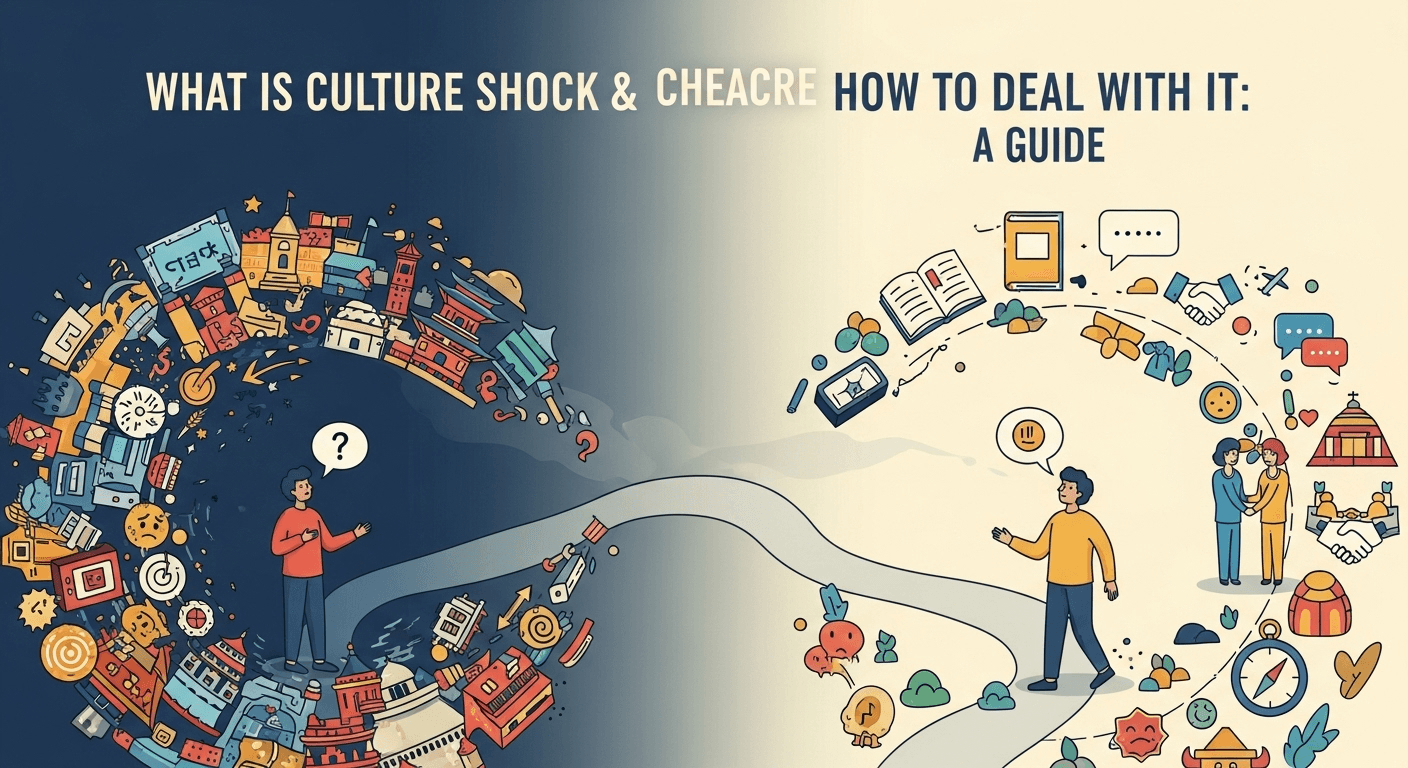Of course. As an SEO expert, I will create a comprehensive, engaging, and unique SEO-optimized article on culture shock, following all your instructions and best practices. — Moving to a new country is an exhilarating prospect. Your mind is filled with images of exploring new landscapes, tasting exotic foods, and embracing a different way of life. It’s an adventure, a fresh start, a chapter waiting to be written. But amidst this excitement, there is a common, yet often misunderstood, challenge that nearly every expatriate, student, and long-term traveler faces: culture shock. It's a powerful emotional and psychological response to the unfamiliar. This guide is designed to be your comprehensive resource on what is culture shock and how to deal with it, transforming a potentially overwhelming experience into a journey of profound personal growth. What Is Culture Shock: More Than Just "Missing Home" At its core, culture shock is the feeling of disorientation experienced by someone who is suddenly subjected to an unfamiliar culture, way of life, or set of attitudes. It's far more complex than simple homesickness. While missing friends, family, and familiar comforts is part of it, culture shock stems from the loss of your familiar social, environmental, and cultural cues. Every subtle sign you use to navigate daily life—how to greet someone, how to queue at a store, the appropriate volume for conversation, even what constitutes a "normal" breakfast—is suddenly gone or replaced by a new, confusing set of rules. This loss of the familiar triggers a genuine psychological response. Your brain, which is accustomed to running on autopilot for most social interactions, is suddenly forced to consciously process every minor detail. This constant mental effort is exhausting and can lead to heightened anxiety, irritability, and a profound sense of isolation. You may feel like an outsider looking in, unable to connect with your new environment in a meaningful way. It's crucial to understand that this is not a sign of personal failure or an inability to adapt; it's a normal and predictable reaction to a significant life change. Ultimately, culture shock is a process of adjustment, not a permanent state of being. It's a journey that involves confronting differences, questioning your own cultural assumptions, and eventually building new frameworks for understanding the world. Many experts, like the notable anthropologist Kalervo Oberg who first popularized the term in the 1950s, have mapped this journey into distinct stages. Recognizing these stages is the first step toward navigating them successfully and emerging on the other side with a more adaptable, resilient, and global mindset. The Four Stages of Culture Shock: A Journey of Adjustment The most widely recognized model for understanding the process of cultural adjustment is the "U-Curve," which outlines four primary stages. While the timeline and intensity of each stage vary from person to person, understanding this framework provides a valuable roadmap. It helps you recognize where you are in the process, normalize your feelings, and see the light at the end of the tunnel. The Honeymoon Stage This is the initial period of fascination and excitement. Everything about the new culture seems wonderful, romantic, and adventurous. You are captivated by the differences in architecture, the taste of new foods, the sound of a foreign language, and the local customs. During this stage, you tend to focus on the similarities between the new culture and your own, and you often perceive the differences in a positive, almost poetic light. You're essentially a tourist, insulated from the more mundane and challenging aspects of daily life. This feeling of euphoria is fueled by the novelty of the experience. You are likely on your best behavior, and locals may treat you with the special courtesy reserved for a guest. You may have planned this move for months or years, so your energy is high and your outlook is overwhelmingly positive. However, this stage is, by its nature, temporary. As the initial excitement wears off and the realities of setting up a life—like navigating bureaucracy, finding a permanent home, or starting a new job—begin to set in, the journey moves into its next, more challenging phase. The Frustration/Anxiety Stage (The "Crisis") This is the stage most people associate with the term "culture shock." The novelty has faded, and the cultural differences that once seemed charming now become sources of irritation and stress. The language barrier may feel insurmountable, leading to feelings of incompetence when trying to perform simple tasks like grocery shopping or asking for directions. Social cues are misinterpreted, leading to awkward encounters and a sense of isolation. You may start to feel that your new environment is illogical, inefficient, or simply "wrong" compared to home. During this crisis phase, you may experience a range of negative emotions, including frustration, anger, anxiety, loneliness, and even depression. You might idealize your home country, remembering only the good things and longing for the ease of familiarity. This is also when physical symptoms can appear, such as fatigue, changes in sleep patterns, or increased susceptibility to minor illnesses. This is the most difficult part of the adjustment process, but it is also the most critical. It’s the period where you are forced to confront the differences head-on, and how you choose to react will determine the rest of your adjustment journey. The Adjustment Stage After weathering the storm of the crisis stage, a gradual shift begins to occur. This is the adjustment stage, where you start to develop routines and become more comfortable in your new surroundings. You begin to understand the new culture on its own terms, rather than constantly comparing it to your own. The language starts to make more sense, you learn how to navigate local systems, and you begin to form genuine connections with local people. You develop a more balanced and objective view of the culture, recognizing both its good and bad points. This stage is characterized by problem-solving and a returning sense of humor. You learn to laugh at your own mistakes and misunderstandings. While you may





